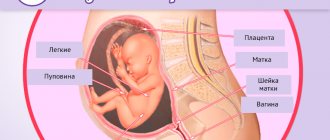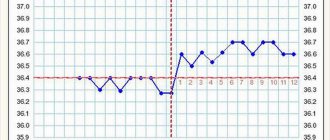While expecting a baby, any expectant mother tries to avoid taking medications, but there are times when it is impossible to do without medications. The condition for which a pregnant woman may need treatment with medication is determined by the attending doctor, taking into account the patient’s complaints and the results of her tests.
Doctors, when prescribing medicinal support for pregnant women, try to select effective herbal preparations that act in a gentle manner. One of these remedies is Hofitol, which is used to eliminate swelling and symptoms of toxicosis, to improve blood circulation between the body of the mother and the unborn child. Let's figure out why Hofitol is prescribed to pregnant women and how to take it correctly.
Therapeutic effect and composition
The drug Hofitol is made from artichoke leaves, which people have used since ancient times to treat kidney and liver diseases. This plant contains a large amount of carotenes and B vitamins.
The therapeutic effect of medicines with artichoke is due to the presence in plant materials of a rich set of natural glycosides, organic acids, essential oils, trace elements and inulin.
When used, it has the following effect on the body:
- the process of bile outflow is normalized, which is sometimes disrupted due to compression of the liver by the enlarged uterus;
- kidney function improves: the drug has a mild diuretic effect, reducing the likelihood of increased blood pressure and the appearance of edema;
- the amount of creatinine and urea in the blood decreases;
- protects the liver from the effects of negative environmental factors, which is very important, since this organ works with double load during pregnancy;
- improves blood flow in the mother-placenta-embryo system;
- the risk of developing embryonic hypoxia is reduced;
- metabolism is normalized, symptoms of toxicosis are smoothed out.
This herbal preparation does not have an antibacterial effect. If the appearance of edema is associated with inflammatory processes in the urinary system caused by pathogens, Hofitol is prescribed in combination with antimicrobial drugs.
Effective for various kidney pathologies.
The drug is available in the form of syrup, tablets or solution for injection. In addition to artichoke extract, Hofitol contains ethyl alcohol and orange syrup.
Composition and principle of action
The instructions classify Hofitol as a choleretic herbal remedy. Each small dark brown tablet contains 200 mg of active ingredient: fresh field artichoke leaf extract. Cynarin contained in artichoke helps the movement of bile and prevents it from stagnating. And vitamins B1, B2, ascorbic acid and carotene, which are also present in the leaves, normalize metabolic processes in the body.
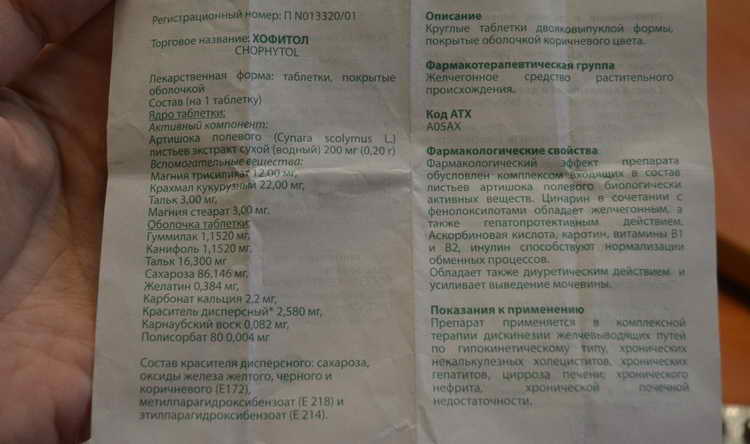
- Auxiliary ingredients: trisilicate and magnesium stearate, corn starch, talc.
- Shell substances: rosin, talc, gelatin, gum lac, sucrose, calcium carbonate, carnauba wax, polysorbate, E 172, E 214, E 218.
In addition to the choleretic and diuretic effects, the instructions indicate that the drug protects the liver from toxic substances and lowers the level of urea in the body.
Indications
Hofitol is prescribed during pregnancy for the following pathologies:
- fluid retention and swelling;
- the likelihood of developing fetal hypoxia;
- prevention of gestosis in later stages;
- excess acetone in the blood caused by diabetes;
- biliary dyskinesia;
- jaundice or hepatosis caused by metabolic disorders;
- fluid retention and swelling.
A pregnant woman needs to remember that there are no completely safe medications, and this statement also applies to herbal preparations. Uncontrolled, independent use of Hofitol is unacceptable during pregnancy; the decision to prescribe it is made only by the attending physician.
Hofitol during pregnancy: instructions for use, dosage, reviews
Hophytol is a natural medicine from field artichoke , which is a dry or aqueous extract of its fresh leaves or their juice. Hofitol refers to herbal preparations that do not contain any artificial potent components.
The field artichoke and the drug Hofitol, produced from its fresh leaves, have a unique combination of beneficial properties for the body of a pregnant woman:
- Mild diuretic. Thanks to the enhanced removal of fluid without harm to the mother and fetus, the formation of edema is prevented.
- Choleretic. Taking Hofitol normalizes the flow of bile, which is impaired due to the large size of the uterus in late pregnancy.
Hofitol has a whole range of properties, including diuretic, jaundice, antioxidant and others.
Hepatoprotective. The vitamins, microelements and minerals contained in artichoke leaf juice normalize metabolism. Combined with improving the flow of bile and reducing the amount of waste in the body, this is a powerful factor in protecting the liver.
- Antioxidant. Thanks to the ascorbic acid and flavonoids contained in the leaves, the woman’s body is protected from the harmful effects of free radicals.
- Detoxifying. Nausea stops, appetite improves against the background of early toxicosis. The excretion of nitrogenous wastes (creatinine and urea) from the body increases.
- Hypocholesterolemic . The result of reducing cholesterol in the blood is an improvement in the condition of the walls of blood vessels, expansion of their lumen and normalization of uteroplacental circulation.
Not only an obstetrician-gynecologist, but also a therapist, nephrologist, hepatologist, and endocrinologist can prescribe Hofitol to an expectant mother. Indications for its use during pregnancy are:
- Chronic pyelonephritis to prevent its exacerbation.
- Bacteriuria when examining the urine of a pregnant woman in combination with antiseptic and antibacterial drugs.
- Tendency to fluid retention and edema due to chronic renal failure, obesity, various metabolic disorders, poor diet or excess water consumption.
- Nausea and vomiting in early pregnancy.
- Preeclampsia of varying severity to improve uteroplacental circulation.
- Excessive accumulation of acetone in the blood due to toxicosis or diabetes.
- Prevention of exacerbation of chronic hepatitis, acalculous cholecystitis.
- Fatty hepatosis or as a complication of pregnancy, accompanied by jaundice.
- Biliary dyskinesia with delayed bile flow.
Most often, Hofitol is used in the form of brown-coated tablets. Chewing them before swallowing is not recommended.
Hofitol solution in 5 ml ampoules or 120 ml bottles has a very pleasant taste due to the filler: orange juice tincture. These release forms are approved for over-the-counter dispensing in pharmacies.
Less commonly used is an aqueous solution of purified artichoke leaf juice extract in 5 ml ampoules for intravenous administration. To purchase it you will need to present a prescription.
Side effects and contraindications
Hofitol is contraindicated for gallstones, liver failure, bile duct obstruction, especially if there is a risk of blockage. Like any medicine, Hofitol can cause allergies.
If you take the drug for a long time, diarrhea may occur. If unpleasant symptoms appear during treatment, stop using the product and consult your doctor.
Hofitol during pregnancy is prescribed only for strict indications. The herbal preparation has positive effects on the body, but limitations and side effects should be taken into account. Whether Chofitol is necessary and possible during pregnancy is decided by a specialist in each individual case.
What is Hofitol?
Women carrying a child often wonder why Hofitol is prescribed to pregnant women. This medicine is made from plant materials – field artichoke, which is a medicinal plant.
Artichoke is useful for:
- disruption of motor activity of the walls of the biliary tract with a decrease in their tone;
- chronic inflammation of the walls of the gallbladder without stone formation;
- chronic inflammation of the liver;
- cirrhosis;
- chronic inflammatory process in the kidneys;
- chronic kidney failure.
Hofitol for nausea during pregnancy is prescribed by doctors for the above pathological phenomena. Uncontrolled use of the drug, carried out independently, is prohibited.
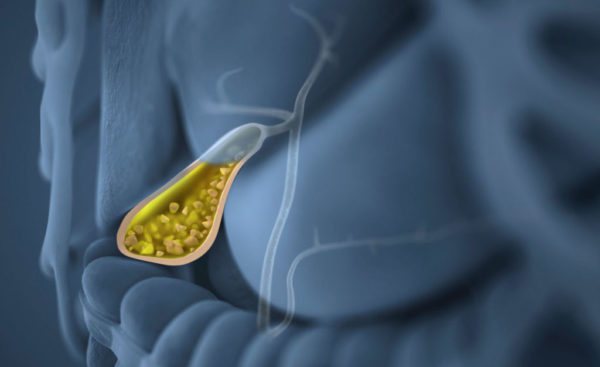
Does it help with toxicosis?
Toxicosis in the early stages can manifest itself as mild vomiting, which bothers a woman no more than five times a day. Such vomiting does not cause changes in blood and urine tests, does not lead to weight loss and does not impair the functioning of the body. Moderate vomiting occurs up to ten times a day, leading to weight loss, increased blood bilirubin, decreased blood pressure and a deterioration in the patient’s general condition.
Excessive vomiting painfully manifests itself up to twenty times a day, leading to a significant deterioration in overall health with an increase in body temperature, tachycardia, a drop in blood pressure and changes in blood and urine (increased bilirubin, acetonuria). These conditions should be distinguished from:
- inflammatory diseases of the digestive tract (gastritis, pancreatitis, appendicitis, hepatitis);
- peptic ulcer;
- oncopathology of the stomach;
- infectious diseases (food poisoning, viral hepatitis, neuroinfections);
- thyrotoxicosis;
- brain diseases (tumors, migraines, injuries, strokes);
- poisoning with medicines, drugs, carbon monoxide, pesticides;
- pathologies of the kidneys and urinary tract.
Before prescribing antiemetics and other drugs, including Hofitol, for toxicosis, you need to undergo an extensive examination. Diagnostics includes laboratory tests of blood and urine, ultrasound examination of the abdominal cavity, kidneys and thyroid gland, fibrogastroscopy, examination by a therapist, ophthalmologist, neurologist, infectious disease specialist, urologist, surgeon, endocrinologist and gastroenterologist.
Among the herbal remedies for mild toxicosis, it is recommended to use ginger. In addition, the treatment regimen includes dietary recommendations:
- food should come in small portions and often;
- food should be fresh and rich in vitamins;
- You should avoid smoked meats, fatty, salty and spicy foods, as well as those foods whose smell causes vomiting;
- Still mineral waters, herbal teas, tea with lemon are useful.
A woman suffering from toxicosis should spend more time in the fresh air, engage in feasible physical exercise, and receive more positive emotions. In severe cases, hospitalization and the use of medications to stop vomiting and restore acid-base balance and fluid volume in the body are indicated. It should be remembered that it is impossible to place two pregnant women with toxic vomiting in the same room, so as not to cause additional reflex attacks. In addition to hepatoprotectors and Chofitol, the prescription of sedatives that calm the nervous system in case of toxicosis of any degree is justified for pregnant women.
Fitball exercises for pregnant women in the first trimester
So, you shouldn’t stop doing gymnastics at the beginning of pregnancy if you used to do them in the morning. And a fitball will be a good helper for this. We offer a complex for expectant mothers at a short stage of pregnancy:
Exercise No. 1. Tilts. Sit on the ball and place your feet shoulder-width apart, pointing your toes out to the sides. As you inhale, bend to the right while raising your outstretched arm above your head. Repeat the same on the other side, balancing on the ball. Don't tilt too deeply. To begin with, you need to perform this exercise 4 times left and right.
Exercise No. 2. Rolls. Sit on the exercise ball and hold it with your hands from behind. As you inhale, slowly roll down, maintaining balance, and return to the starting position.
Exercise No. 3. Rolling a fitball. Lie on the floor and place your feet on the ball. Slowly move the ball forward and return it back. Exercise strengthens the abdominal muscles.
Exercise No. 4. Get on your knees and lie with your chest on the fitball. Rest your hands on the floor. Lean forward, moving the ball with your chest and helping yourself with your hands. Return to the starting position.
Exercise No. 5. Torso rotations. Sit cross-legged on the floor and hold the ball above your head with your arms outstretched. Move your torso clockwise, then do the same counterclockwise. Don't bend your arms, keep your posture.
Exercise No. 6. Ball rolls. Sit on the floor. Place one foot on the fitball. Roll the ball to your feet one at a time. In this case, you can lean your hands behind you to maintain balance.
More on the topic
What physical exercises will help restore your figure after childbirth?
Abdominal exercises after childbirth
Exercises to prepare for childbirth
Exercises after childbirth: how to do it correctly?
How to pump up your abs after childbirth: basic exercises for the abdominal muscles
Review Reviews
Women who used hofitol during pregnancy left mostly positive reviews of this drug. As a percentage, 85% of respondents note a positive effect. This applies to reviews of the use of Hofitol for toxicosis. The drug is well tolerated, and the positive effect is associated with cleansing the body due to a decrease in urea and a diuretic effect.
Medical reviews of Hofitol during pregnancy depend on what this drug is prescribed for. Doctors note a decrease in blood urea in most patients, a decrease in the frequency of vomiting and an improvement in the general well-being of pregnant women.
Instructions for use
The instructions for use note that the drug is a choleretic drug and can only be used as indicated and under the supervision of a doctor.
It cannot be used for:
- acute kidney pathologies;
- stones in the gall bladder and ducts;
- acute lesions of the liver tissue;
- allergies to the components of the drug.
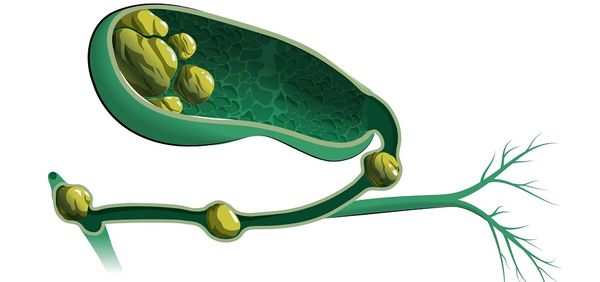
Can it be used early?
Hofitol for toxicosis of pregnant women in the early stages is prescribed by specialists of various profiles in the presence of chronic pathology of the kidneys and hepato-biliary system, as well as in cases of increased urea due to excessive vomiting. This drug is not primary for toxic vomiting. If it was prescribed, the doctor will explain to the woman how to take Hofitol during pregnancy for toxicosis.
Side effects to consider:
- development of diarrhea (typical for large doses and long-term use);
- allergic reactions.
How to take the pills?
Having figured out why hofitol tablets are prescribed during pregnancy, a woman needs to decide on the dosage. One tablet contains 200 mg of extract from the leaf part of the field artichoke plant. This plant is rich in ascorbic acid, carotene, vitamins - thiamine and riboflavin, as well as inulin, which characterizes it as medicinal and useful for metabolic processes.
How to take Hofitol during pregnancy, if justified by the presence of a pathological process, depends on the severity of the condition and the weight of the patient. Take 2-3 tablets three times before meals, distributing them evenly throughout the day. The body of a pregnant woman is sensitive to the intake of various substances, so one should remember the presence of not only the main substance, but auxiliary components and shell components.
How to drink the solution?
The dosage of Hofitol in solution during pregnancy is from half to one teaspoon, which corresponds to 2.5 - 5 ml. Add a little water to the medicine and drink it before meals three times a day.
Be aware of the presence of flavorings and alcohols, including ethanol. Continuous use of the drug is not permitted; a course of treatment is indicated for a maximum period of three weeks.
Use of Chofitol for toxicosis
It is far from uncommon that during pregnancy many medications are prescribed depending on the woman’s condition and medical indicators.
At this point it is important:
- Do not take medications without consulting a doctor;
- The dosage, whether in the first trimester or in the third, should be prescribed only by a doctor;
- Do not try to replace Hofitol with other drugs or stop taking it altogether, unless there is an obvious reason, until you consult a doctor.

Self-medication is strictly prohibited. The instructions for use do not contain data on how exactly Hofitol interacts with other medications, and therefore they drink it as much as needed, depending on the need and needs of the body. The drug must be stored, like any other medicine, in a specially designated place where children cannot reach it.
It is advisable that the product be stored at a temperature of no more than 25 ° C, since otherwise it may lose its basic properties and the body may be harmed from it.
As a rule, the shelf life is 2 years, if it is an injection solution, 3 years, tablets - 4 years, the product can also be purchased in syrup form. It can be stored for a long time and may well be useful for a couple of pregnancies. Describing pharmacokinetics is almost impossible, as even experienced specialists find it difficult to do.
It is worth noting that the drug contains only one substance - a plant that has such components as:
- Carotene;
- Ascorbic acid;
- Inulin;
- Polyphenol;
- Bioflavonoids;
- Various types of acids;
- B vitamins;
- Vitamin C;
- Minerals.
It is simply impossible to isolate exactly how each component affects the body, and therefore you just need to monitor your condition during consumption and, if strange symptoms occur, contact a specialist.
Cervical smear: 7 important facts
Is it allowed while breastfeeding?
Chofitol during breastfeeding (BF) is prescribed for the same indications as during pregnancy, that is, for pathology of the liver and kidneys. The main condition is the absence of exacerbations and good tolerability. Chophytol during breastfeeding can cause allergic reactions in mother and child, therefore it is used only under the supervision of a specialist.
The presence of auxiliary components is taken into account:
- corn starch;
- magnesium trisilicate and stearate;
- talc.
Composition of the drug
Each tablet of the drug Hofitol contains an extract of fresh artichoke leaves in an amount of 0.2 g. Corn starch, magnesium trisilicate, magnesium salt of stearic acid, talc are additional components. The components of the shell are as follows: colophon resin, gelatin, sugar, gum lacquer, calcium carbonate, talc, disperse dye, palm wax, polysorbate.
Liquid for injection contains 20 mg of plant extract in 1 ml of solution (or 0.1 g in an ampoule). It has only one auxiliary component - purified water.
Syrup (suspension) Hofitol for internal use contains 20 g of aqueous essence. Additional ingredients: purified water, ethanol, glycerin, preservative E218, propyl parahydroxybenzoate, flavoring.
Treatment of newborns
The administration of the drug to newborn children, that is, in the first four weeks, is controlled by pediatricians and must take into account the child’s body weight. For children it is used for hepatitis, nephritis with increased urea. The medicine is given in a solution of 5 drops three times a day before feeding.
Everyone knows that the body of a pregnant woman is subjected to enormous stress. Perhaps there is no organ that would be left unattended by the immune system and hormonal imbalance, so the expectant mother needs support. To do this, it is recommended to review your diet, avoid stress and regularly walk in the fresh air. If this is not enough, folk recipes and natural medicines come to the rescue, one of which is Hofitol.
What is Hofitol?
Hofitol is a natural herbal preparation based on field artichoke extract. The medicine contains an aqueous extract of its leaves, rich in biologically active substances, vitamins B1 and B2, carotene, ascorbic acid, and inulin. The combination of these components has a beneficial effect on metabolism.
During pregnancy, this remedy is prescribed very often. It improves blood circulation in the uterus and placenta, thereby easing the load on the kidneys and liver and normalizing their function. Taking the drug has a positive effect on the oxygen supply to the fetus and improves the child’s vital signs. It also has a preventive effect against many malformations and fetal hypoxia, and reduces the likelihood of gestosis.
Hophytol is prescribed for chronic cholecystitis, gallbladder dyskinesia, renal failure, fatty hepatosis, detection of acetone in the blood, difficulty urinating, chronic hepatitis, atherosclerosis, giardiasis, impaired blood flow, threatened miscarriage, as well as an increased risk of eclampsia and preeclampsia.
For the expectant mother, the drug is useful for improving metabolism, as it has a mild diuretic and choleretic effect. It removes waste and toxins from the body, protects liver cells from harmful substances, and removes excess urea from the blood. As a result, the expectant mother feels much better.
Hofitol is available in several forms:
- tablets with 200 mg of active substance;
- oral solution;
- ampoules for injection (5 ampoules of 5 ml).
During pregnancy, it is allowed to take tablets and administer the drug intramuscularly. The oral solution is prohibited because it contains alcohol.
Why is it prescribed during pregnancy?
While carrying a child, the female body experiences enormous stress. Often, various diseases are added to them that were not present before conception, for example, heartburn or edema. Therefore, for the normal functioning of the expectant mother’s body, some medications are prescribed that can improve the well-being of the pregnant woman. One such medicine is Hofitol.
The main purpose of the drug is to improve blood circulation in the uterus and placenta, normalize the functioning of the liver and kidneys of a pregnant woman.
According to clinical studies, the use of the drug during pregnancy increases the flow of oxygen to the fetus, which helps improve its vital signs. Hofitol prevents the formation of nephropathy or facilitates its course, reducing the likelihood of severe gestosis, including those accompanied by eclampsia and preeclampsia.
The components present in the composition stabilize metabolic processes, which also has a beneficial effect on the condition of the pregnant woman.
The medication has a choleretic and diuretic effect, protects liver cells from harmful substances, and reduces the volume of urea in the bloodstream. Such a complex effect improves the well-being of expectant mothers, according to their reviews, and is also confirmed by the results of medical diagnostics.
How to take Hofitol during pregnancy?
Hofitol is allowed to be taken at any stage of gestation, especially if there are reasons for taking it for preventive and therapeutic purposes. The indications are:
- liver diseases (cirrhosis, hepatitis);
- cholecystitis;
- difficulties in the outflow of bile and biliary dyskinesia.
The drug is prescribed for chronic kidney diseases, renal failure, in the diagnosis of fetoplacental insufficiency, the threat of fetal hypoxia, and with an increased risk of developing nephropathy and gestosis.







